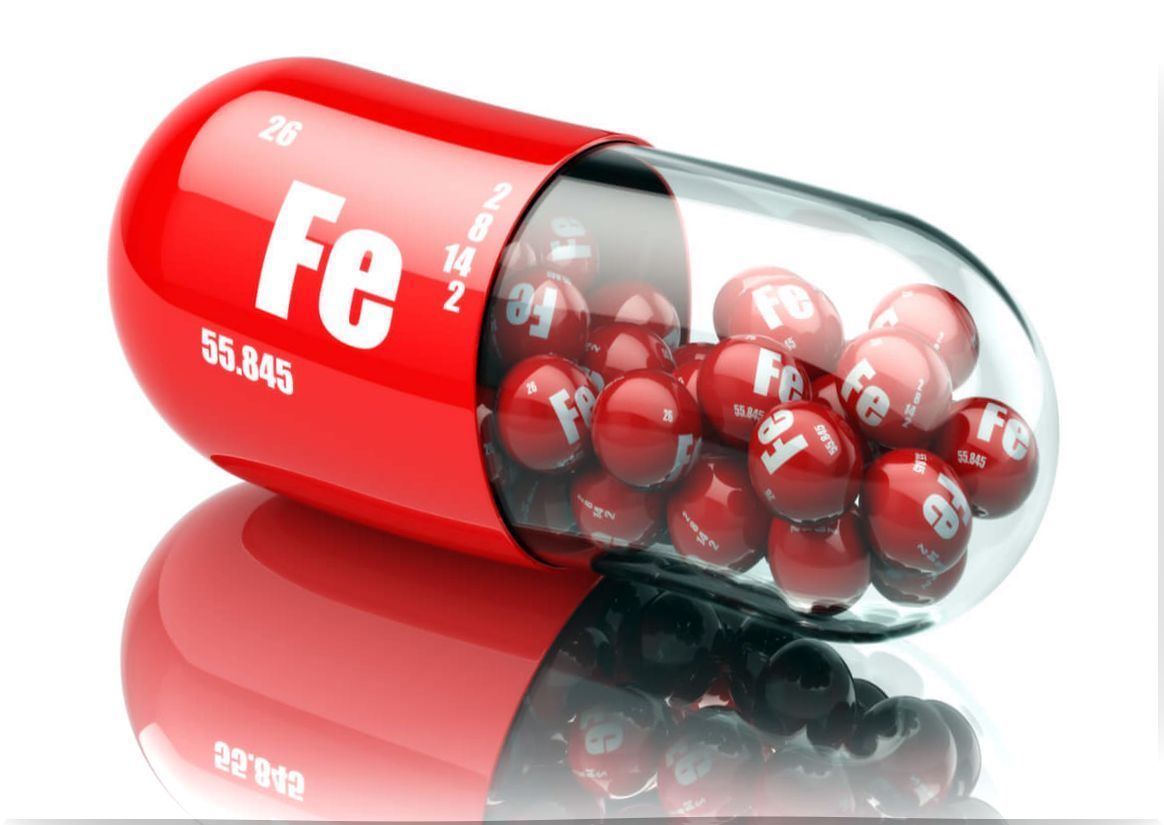Iron And Calcium: Their Importance In The Life Of Women
Iron and calcium levels must be controlled during the different stages of a woman’s life. Both play an important role, especially when there are physiological and hormonal changes, the most significant stages being menstruation, pregnancy, lactation and menopause.
It is important that before taking iron and calcium supplements, you review your diet and make the necessary changes. Eating a healthy and balanced diet helps prevent health problems.
Iron

Iron is the most abundant trace mineral in the body. Of all the amount of iron that we take each day, only 10% is absorbed and the rest is eliminated in the feces. The main functions in which iron participates are the following:
- It carries oxygen from the lungs to the rest of the body.
- It collaborates in the metabolism, intervening in the obtaining of cellular energy.
- It is part of the myoglobin in the muscle.
- Promotes enzymatic reactions.
Having low iron levels can lead to iron deficiency anemia. This type of anemia is the most frequent, but in addition, this Lack of iron can cause you to experience symptoms such as fatigue, weakness, cold hands and feet, or a headache.
Calcium
Calcium is one of the most important minerals in the body, it is present in bones and teeth, making up more than 99% of its structure.
The amount of calcium in the body has been shown to be related to height, not age. For this reason, an increase of 20 grams of calcium is produced for each centimeter of height.
We can obtain this mineral in two ways: those of dairy origin and non-dairy ones, the second group includes fish and their preserves. To maintain adequate levels of calcium, it is advisable to consume in moderation coffee, alcohol and salt, since according to some studies excessive caffeine consumption is not good for bone health.
Iron and calcium in the different stages of a woman’s life

1. During menstruation
Anyone loses about 1 milligram per day of iron in the form of sweat and urine. During menstruation, losses increase by 0.5 milligrams a day. For this reason, if your periods are heavy or long, you may have to boost iron levels by taking a supplement.
Calcium needs, as we have said, are related to height, however , the recommended daily dose during menstruation is 1000-1300 milligrams per day.
2. Iron and calcium in pregnancy
During pregnancy the recommended dose is between 1000 and 1300 milligrams of calcium per day. In case the intake Maternal calcium is not enough, you can promote bone demineralization.
In young mothers as they have not yet reached the peak of their bone mass, it is more important if it is possible to control the calcium intake.
3. During lactation
Labor and breastfeeding are two stages in which there is a significant loss of iron. The RDA for calcium when breastfeeding is 1,000 to 1,300 milligrams per day. If you are a nursing mother, you should adjust your diet by increasing calcium intake to compensate for the needs of this stage.
However, keep in mind that the composition of breast milk varies depending on the nutritional status of the mother as well as the type of diet.

4. Iron and calcium in menopause
Menopause is a stage that brings many changes in a woman’s life. If you maintain a correct diet, you can prevent or delay some of the problems that may appear, such as:
- Osteoporosis
- Over weight
- Dyslipidemia
During menopause, calcium needs increase because bone resorption increases and bone mineral density decreases. At this stage it is important that you take calcium supplements, with a recommended dose of 1200 milligrams of calcium with 800 milligrams of vitamin D.
You need to take the recommended daily amounts of iron and calcium at each stage. The ideal way to do this is through a balanced and healthy diet. Although depending on the circumstances, you may need to take a supplement. Before acquiring them and starting to take them on your own, get advice in consultation with your doctor or pharmacist.









